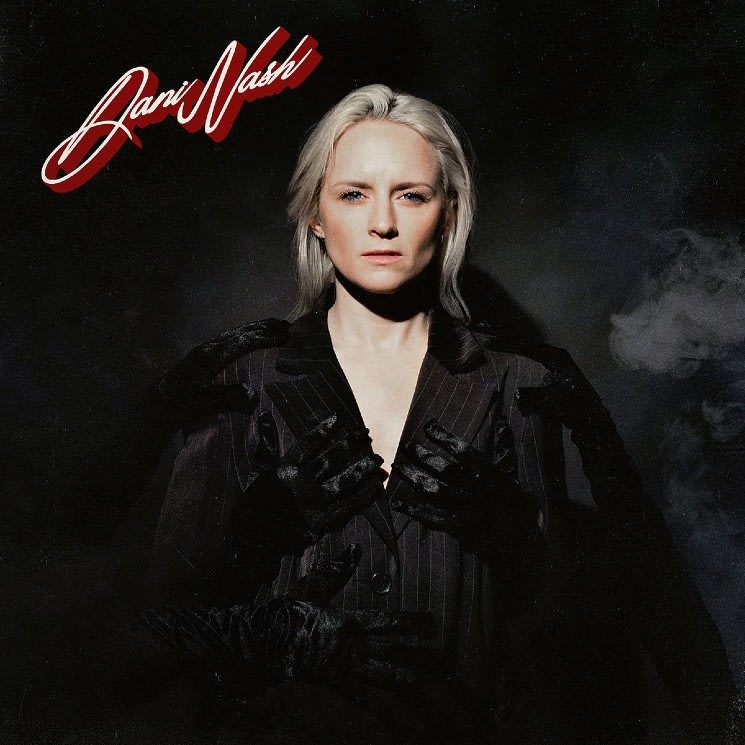Dani Nash's self-titled album is an incredible debut from a dependable member of Toronto's queer music scene. After 10 years of hiding behind a kick, it's nice to see one of Canada's most highly sought-after drummers — backing acts like July Talk, Andy Shauf and Sarah Harmer, to name a few — standing up from her stool and taking centre stage. While Nash flexes her multi-instrumentalist skills throughout the album, her abilities as a songwriter are rooted in her drumming abilities. The beat is the focal point of each of the songs, providing a solid base for each track to expand upon.
Nash really leans into a late-'70s/early-'80s new wave sound, very reminiscent of the Cars and Tears for Fears. While queerness isn't an overt thematic element in the music, the undertones run through her lyrics. It's less about the grand proclamations, and more about the nuances of the queer experience, which pop up on tracks like "West Side." Nash likes to explore the themes of loneliness, apparent in songs like "Lady, Lover." Through the mellowed-out smoothness of the instrumental, to the vocal tones she uses, she paints a picture of these scenarios. Standout track "New Trend" is an '80s sitcom theme song in the best possible way. Catchy guitar hooks, the airy piano, chorus harmonies and the way the sax hits at the end makes it sound like the end theme of a John Hughes movie.
The composition of this album is near perfect, as each of the tracks has been placed purposefully, and helps contribute to the package. It's noticeable with the first and last track in particular, with "Get a Dog" ending the album on a subdued note that slowly fades to silence. With themes of staying in and rearranging your records, it acts as a counterpoint to the bombastic, party intro that she sets up with "When I Run."
The album does veer into an edgier, more analogue-focused sound towards the middle, flexing Nash's versatility in genre. It keeps with the late-'70s vibe, but the tone varies into Nash opt for crunchy vocals and rougher guitar. While it seems a little jarring turn from the more synth-focused sound she brought earlier, Nash has transitional moments to pull listeners in and out of those moments.
The whole album feels familiar in a way, yet uniquely new. Nash's influences are apparent, but don't overwhelm the originality of the album. It's exciting to see such an accomplished musician showcase their art in such a triumphant way. Nash is going to have a hard time blending into the background after this album.
(Victory Pool)Nash really leans into a late-'70s/early-'80s new wave sound, very reminiscent of the Cars and Tears for Fears. While queerness isn't an overt thematic element in the music, the undertones run through her lyrics. It's less about the grand proclamations, and more about the nuances of the queer experience, which pop up on tracks like "West Side." Nash likes to explore the themes of loneliness, apparent in songs like "Lady, Lover." Through the mellowed-out smoothness of the instrumental, to the vocal tones she uses, she paints a picture of these scenarios. Standout track "New Trend" is an '80s sitcom theme song in the best possible way. Catchy guitar hooks, the airy piano, chorus harmonies and the way the sax hits at the end makes it sound like the end theme of a John Hughes movie.
The composition of this album is near perfect, as each of the tracks has been placed purposefully, and helps contribute to the package. It's noticeable with the first and last track in particular, with "Get a Dog" ending the album on a subdued note that slowly fades to silence. With themes of staying in and rearranging your records, it acts as a counterpoint to the bombastic, party intro that she sets up with "When I Run."
The album does veer into an edgier, more analogue-focused sound towards the middle, flexing Nash's versatility in genre. It keeps with the late-'70s vibe, but the tone varies into Nash opt for crunchy vocals and rougher guitar. While it seems a little jarring turn from the more synth-focused sound she brought earlier, Nash has transitional moments to pull listeners in and out of those moments.
The whole album feels familiar in a way, yet uniquely new. Nash's influences are apparent, but don't overwhelm the originality of the album. It's exciting to see such an accomplished musician showcase their art in such a triumphant way. Nash is going to have a hard time blending into the background after this album.




